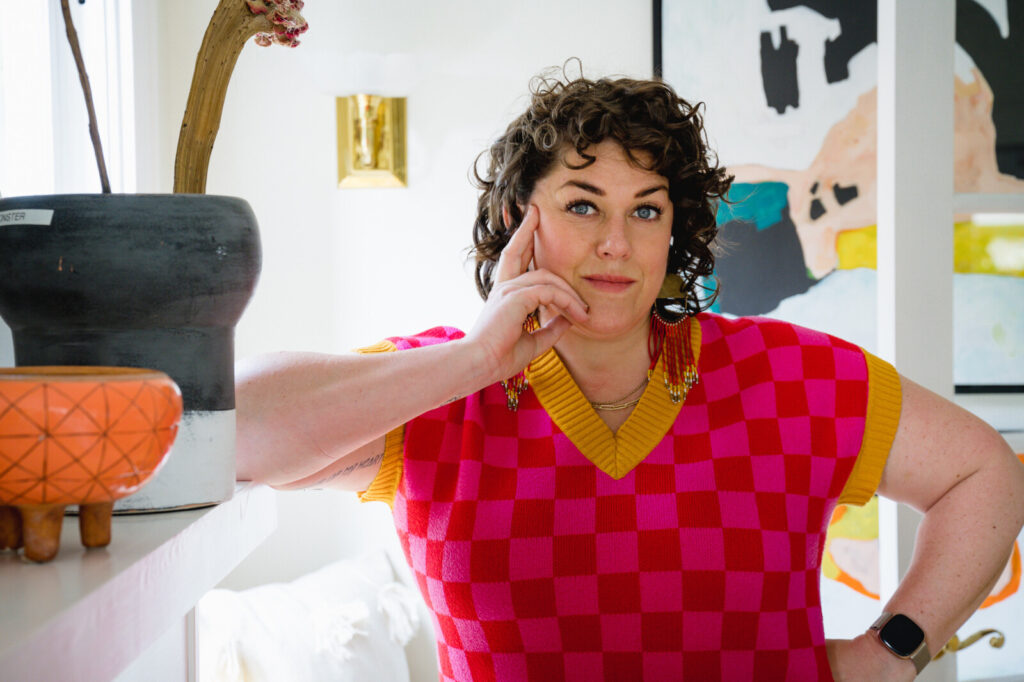Divorce. Not exactly a word anyone wants to see on the same page as “real estate.” But hey, life’s messy, right? When relationships end, the home you built together is often caught in the middle. So, what do you do when you’re faced with both heartbreak and homeownership? Well, that’s where my good friend, the brilliant Steph Noble, and I come in. We recently sat down for a chat (Instagram Live, obviously) to break down the financial realities and emotional hurdles of real estate during a divorce. Spoiler alert: It’s not just about the house—it’s about your future.
Let’s dive in, shall we?
So, What Happens to the House?
One of the first, and probably hardest, decisions is—What. To. Do. With. The. House. It’s more than a residence—it’s memories, milestones, and maybe a few questionable DIY projects (don’t blame me, blame Pinterest).
Steph says it best: “Some people want to stay because it feels like the only stable thing left, especially with kids involved. Others are ready to sell, start fresh, and not look back.” The point is, there’s no one-size-fits-all answer here. You’ve got options: sell and split the proceeds, buy out your partner’s share, or refinance to make things more manageable.
Here’s a big heads up: If you’ve filed for divorce but haven’t finalized it, buying a home can get complicated. Banks typically won’t approve a loan when your divorce is still pending, which means you may need to put some plans on hold until all the paperwork is signed, sealed, and delivered. So either make your real estate moves before you file or after it is totally finalized and signed off by a judge. (A perfect time to revisit our old blog, “Lawyer for a Day,” for some legal insight!)
Whatever the case, the goal remains the same. Finding what works for YOU in the long run. Trust me, life does settle after the chaos.
Can You Afford to Keep the House?
Alright, deep breath. Can you actually afford to keep the house on your own? Loving your home is one thing, but crunching the numbers is where the real story begins. Steph’s advice? “Figure out how much equity you have, then see what buying out your partner would look like. From there, work with your lender to see if you can realistically handle the payments solo.”
One option that might be worth considering is using a Home Equity Line of Credit (HELOC) instead of a full refinance to buy out your ex. It’s a way to tap into your home’s equity without the hassle of a complete mortgage overhaul. But fair warning: those HELOC appraisals can sometimes be a little on the high side because lenders want to loan you more money. Be cautious about overextending yourself.
This isn’t about jumping into decisions with your heart alone—it’s about making smart decisions. Divorce changes things, especially financially. What worked with two incomes might feel like a stretch on one. But hey, you’re not in this alone. That’s why you’ve got a team, and trust me, we’re here to help you make the right moves.
Renting vs. Buying Post-Divorce
Look, when life flips upside down, sometimes the best decision is to hit pause. It’s all about giving yourself breathing room and renting for a while might be the best way to get some clarity.
“There’s no rush to make a massive financial commitment right after a divorce,” Steph says. “Renting gives you time to re-evaluate and rebuild without the pressure.”
Another great tip is, when deciding whether to rent or buy, don’t just compare home prices—take a good look at rental prices too. Sometimes, even if that mortgage feels hefty, the rent for a comparable home might be just as high. Knowing both sides can help you make a more informed decision about your next move.
Let’s be honest—diving into another home purchase while you’re still figuring things out? That’s the real estate version of a rebound relationship (and we all know how those usually end). Take a minute, breathe, and revisit our Home Buying Basics when you’re ready to think long-term.
The Credit Score Myth
One of the myths we need to bust— Divorce doesn’t directly kill your credit score. What does? Not paying your bills. Joint debts, like mortgages and credit cards, can tank both your credit scores if payments stop. “As long as you’re making your payments, your credit should be fine,” says Steph.
So, while you’re splitting assets, don’t let your credit take the hit. You’ve got enough to deal with, no need to add a trashed score to the list.
How to Make the Process Smoother?
Divorce isn’t easy. That’s a fact. But dealing with real estate during a divorce? We can make that part a little smoother. Here’s how:
- Get pre-approved EARLY: Before making any big decisions, talk to your lender. Whether you’re refinancing, buying out your ex’s share, or selling and moving on, know what you qualify for first. Trust me, it’ll save you a ton of stress later.
- Keep communication OPEN: I know, easier said than done, but if you’ve got kids, pets, or shared responsibilities, keeping some form of communication (even if it’s the bare minimum) will make things way less messy.
- Trust your team: You don’t have to go through this alone. Whether it’s me, Steph, or both of us,
we’ve walked this path with others and know how to get you through it. Let the professionals guide you—we’ve got your back.
The Bottom Line
Divorce is never easy—emotionally or financially. And when real estate enters the chat, things can get complicated. But you don’t have to go through this alone. Whether you’re selling, buying, or figuring out how to split the house, there’s always a way forward. I promise.
At the end of the day, it’s not just about houses. It’s about your life, your next chapter, and making sure that, whatever happens, you’re set up for success. And that’s what I’m here for—helping you take those next steps with confidence and clarity.
If you’re ready to talk, reach out to Team Goché or contact Steph at CrossCountry Mortgage. Let’s get through this, together.








